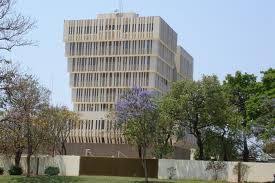The investigation focusing on illegal forex externalisation in Malawi is still ongoing. It is some eight months after the Reserve Bank of Malawi (RBM) first discovered the ongoing crime. It appears that unscrupulous companies have been illegally moving millions of dollars out of Malawi for years now, all at the expense of the Malawian economy.
Last year alone Malawi, according to RBM governor Dalitso Kabambe, lost $394 million (MK5.69 billion) from illicit forex externalisation.
Kabambe laments this unscrupulous practice, done under the guise of transfer pricing.

He had defined transfer pricing as “setting the price of goods and services sold between controlled or related entities within an enterprise.” Trade pricing in itself is permissible. But it is illicit when used as a means to avoid taxation.
And so the RBM is continuing its search for everyone involved in this malpractice. At the moment a handful of multinational companies are now being investigated for financial crimes. Dr. Grant Kabango, deputy governor of the RBM confirms the ongoing investigation, with the central bank suspecting the companies of under-declaring sales to externalise agricultural products and produce.
In doing so they are also able to externalise forex, and “hide from the Malawian government foreign currency meant for the country.”
A long-standing battle
This investigation is likely to be protracted as Malawi has long been dealing with foreign exchange plunders. In particular, the country is being victimised by illegal forex externalisation, which has been adversely affecting Malawi’s economy for years now. Worse is that both Malawian companies and individuals “masquerading as travellers” are often in on the scheme.
Already the RBM has filed several cases involving illegal forex externalisation. Most notable of these cases is the one against Abdul Rehman of Cotton Ginners Limited, as it involves approximately $20 million (MK15 billion).
The government is also after 11 Chinese firms that allegedly siphoned $5.5 million (MK4 billion) out of the country via illegal forex externalisation.
Even more disheartening, the situation seems to be worsening. Cases of illegal forex externalisation are on the rise, in part due to not enforcing financial laws and the delayed of high-profile prosecutions.
Exacerbating matters is the sheer market size and liquidity of forex. FXCM puts the average daily trading volume at $5 trillion (MK 72 trillion) making it the largest liquid market in the world. This makes regulation extremely difficult and complicated. Consequently, illicit activities still slip through the seams despite the government’s regulatory efforts.
But the RBM is pushing back hard, even partnering with prosecution agencies to better combat illegal forex externalisation.
The RBM’s partner agencies are the Malawi Police Services, the Director of Public Prosecutions, the Director General, the Anti-Corruption Bureau, the Malawi Revenue Authority, the Financial Intelligence Authority, and the National Intelligence Services.
Better than last year
The RBM and its partner agencies are making headway in cracking down on illicit financial activities. Evidence of this improvement is the number of illegal forex externalisation cases already filed.
The situation is certainly better compared to last year, when Lowani Mtonga expressed in an op-ed his disgust at the government’s seeming inaction. The piece urged the government to “prosecute the perpetrators” of financial crimes.
A year later, it is happening. This development bodes well for Malawi, whose economy is continuously being undermined by these illicit activities



